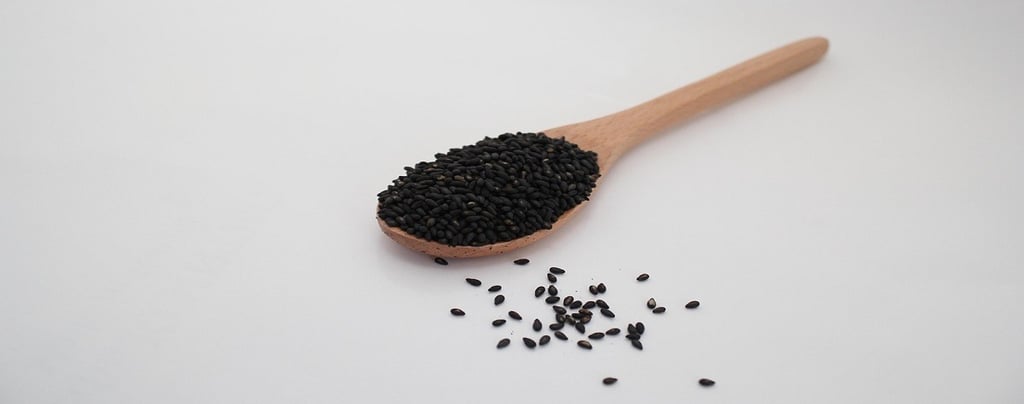Health Benefits of Sesame Seeds (Til)
Sesame seeds are oilseeds rich in protein, fiber, vitamins, and minerals. They are beneficial for heart health and diabetes management. Read this mini blog to learn more!


Sesame seeds are nutritious, oil-rich seeds grown mainly in Asia and Africa. They are consumed for their nutty flavour and health benefits.
Sesame seeds are generally of two colors: white and black. Black sesame seeds are considered more nutritious than white ones. In this article, we will discuss the nutrients and benefits of black sesame seeds.
These seeds are consumed in two ways: hulled and unhulled. In hulled sesame seeds, the outer edible skin is removed, while in unhulled sesame seeds, the outer skin is intact.
Unhulled black sesame seeds are crunchier and more nutritious than hulled seeds.
Black sesame seeds are an excellent source of dietary fiber, calcium, magnesium, copper, and manganese.
Black Sesame seeds are quite beneficial in the prevention of several diseases and improving heart and bone health. Sesame seed oil is also used in cosmetics for its moisturizing properties.
These seeds can be added to salads, shakes, cereals, and baked goods. You can also make Til Laddu, a sweet in which the sesame seeds are mixed with jaggery to form small balls; Til Laddu is quite famous in India.
According to the United States Department of Agriculture (USDA), black sesame seeds contain the following nutrients.
Pros of Eating Sesame Seeds
1. Fiber in black sesame seeds improves digestive health.
2. Regular consumption may lower triglycerides and bad cholesterol (LDL).
3. Hulled black sesame seed is a good source of plant protein.
4. Magnesium present in black sesame seeds helps lower blood pressure.
5. Black sesame seeds contain nutrients like calcium, zinc, and magnesium, which help strengthen bones and relieve arthritis pain.
6. Regular consumption can help reduce inflammation.
7. Black sesame seeds contain pinoresinol, a compound that helps in diabetes management.
8. Antioxidants present in black sesame seeds prevent cell damage and reduce the risk of chronic diseases.
9. Nutrients such as zinc, copper, vitamin E, and iron help boost immunity.
10. Black sesame seeds are a great source of selenium, which supports thyroid health.
11. Phytoestrogen, a plant compound in black sesame seeds, is similar to the female sex hormone estrogen. Sesame seeds can be helpful to women with estrogen deficiency.
12. Black Sesame seeds have anti-bacterial properties that can help fight infections.
13. Sesamol, an organic compound in black sesame seeds, has anti-cancer properties.
14. Regular consumption of black sesame seeds can prove beneficial for hair and skin health.
Cons of Eating Sesame Seeds
1. People taking diabetes medication should avoid excessive consumption of sesame seeds, as it may cause blood sugar levels to drop below normal.
2. Sesame seeds may cause blood pressure to fall below normal if consumed in large quantities with high blood pressure medication.
3. Individuals with sensitive digestion may experience gas and bloating due to the high fiber content of sesame seeds.
4. Sesame seed allergy may cause symptoms such as swollen throat, diarrhea, vomiting, and nausea.
5. Sesame seeds are calorie-dense; excess consumption may lead to weight gain.
6. Oxalates present in sesame seeds increase the risk of kidney stones.
7. Sesame seeds contain phytates, an anti-nutrient that inhibits the absorption of iron, zinc, and calcium.
8. Sesame seeds may be contaminated with aflatoxin, a toxic substance produced by molds, which can be harmful.




